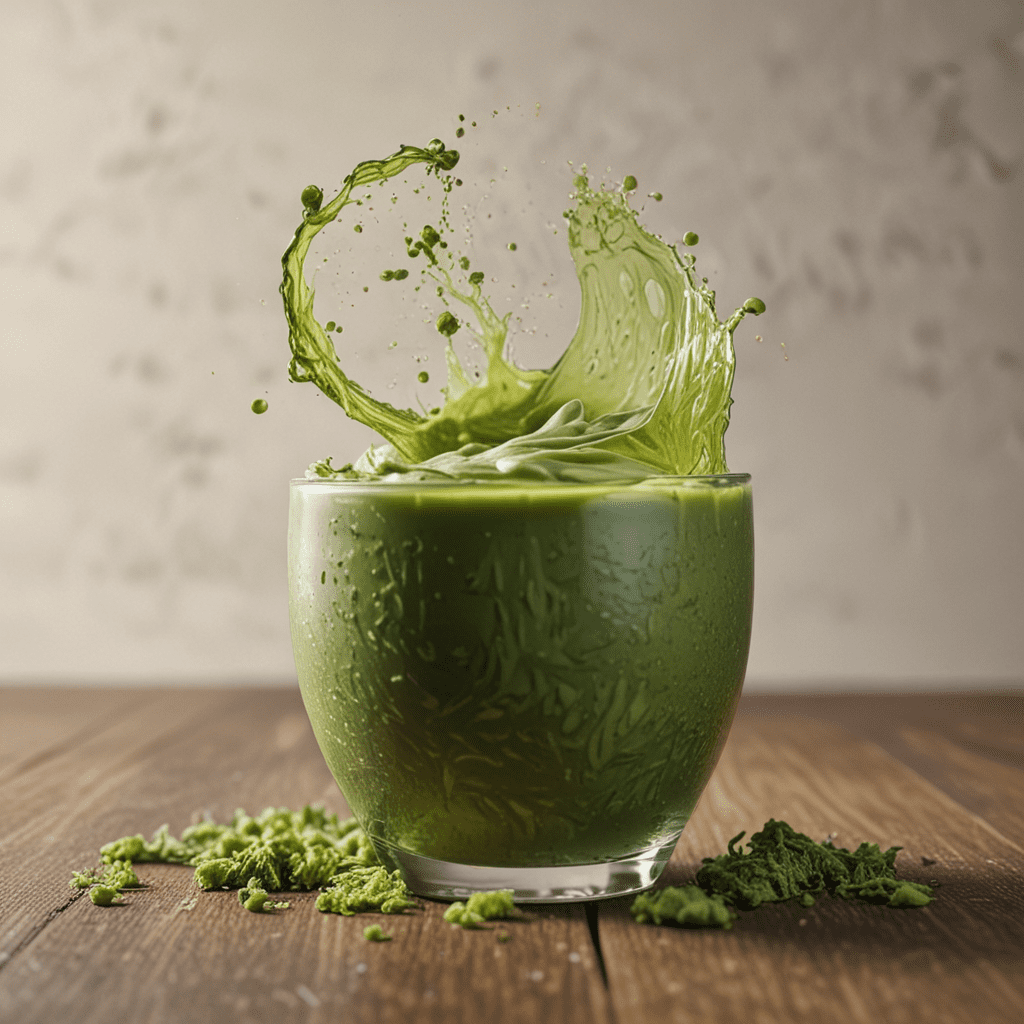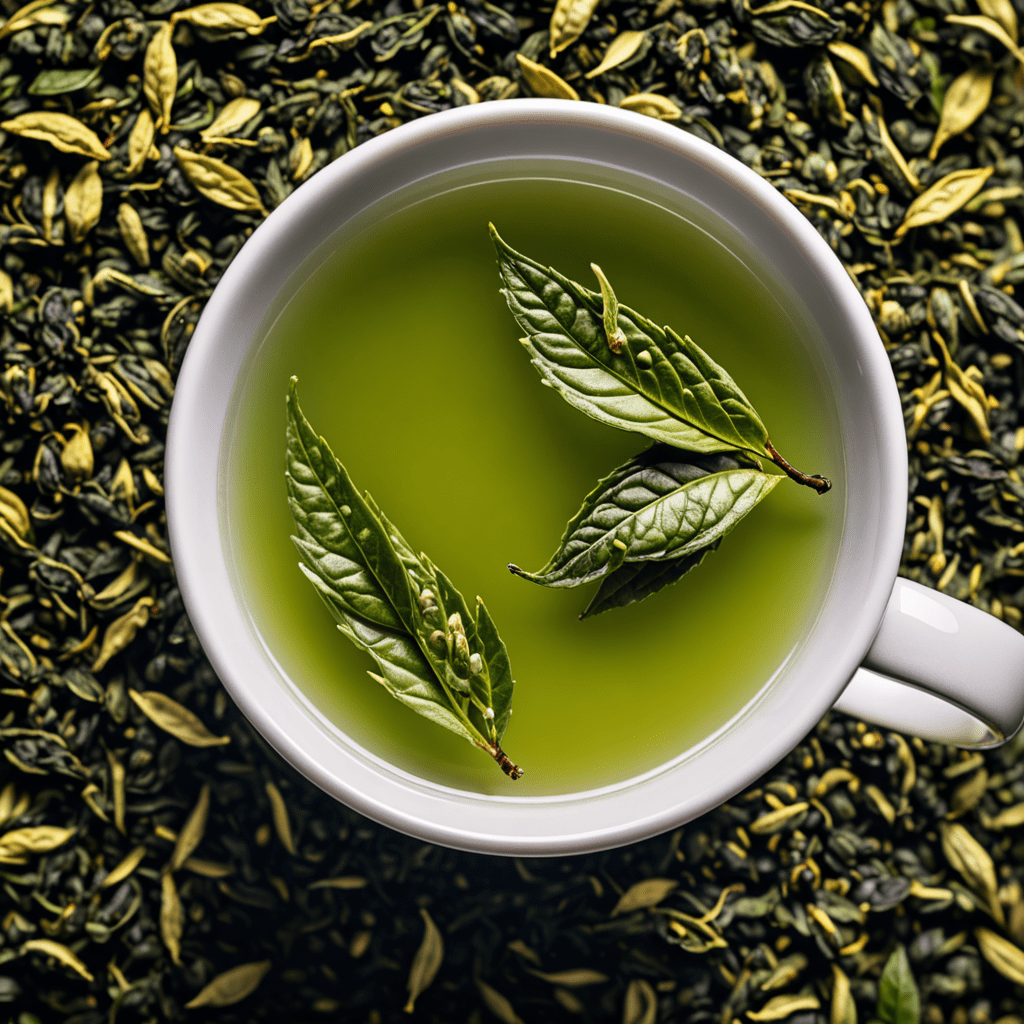
Matcha and Brain Function: Green Tea’s Cognitive Benefits
1. Introduction
Matcha, a vibrant green tea with a rich history and unique properties, is gaining recognition for its potential brain-boosting benefits. Derived from shade-grown tea leaves, matcha is a concentrated powder that offers a potent dose of nutrients, antioxidants, and bioactive compounds. This article delves into the biochemistry of matcha, explores its antioxidant properties, and examines the emerging evidence on its positive effects on cognitive performance, attention, memory, and overall brain health.
2. Biochemistry of Matcha
Matcha contains a plethora of bioactive compounds that contribute to its health benefits. These include:
- Catechins: A type of antioxidant found in green tea, with epigallocatechin gallate (EGCG) being the most abundant.
- Theanine: An amino acid that promotes relaxation and focus.
- Chlorophyll: A pigment responsible for matcha's vibrant green color and antioxidant properties.
- Vitamins and minerals: Including vitamin C, vitamin K, potassium, and magnesium.
3. Matcha's Antioxidant Properties
Matcha is exceptionally rich in antioxidants, particularly catechins. Catechins possess powerful antioxidant properties that counteract the damaging effects of free radicals, molecules that contribute to aging and various diseases. By neutralizing free radicals, matcha helps protect cells against oxidative damage and supports overall health, including brain function.
4. Matcha and Cognitive Performance
Studies have indicated that matcha consumption may enhance cognitive performance. Matcha's high concentration of antioxidants, particularly EGCG, is thought to play a role in improving attention, reaction time, and working memory. Research suggests that regular matcha intake may support cognitive function in both healthy individuals and those with age-related cognitive decline.
5. Matcha's Effects on Attention
Matcha's unique combination of caffeine and theanine has been shown to positively influence attention and alertness. Caffeine acts as a stimulant, while theanine promotes relaxation and focus. Together, these compounds enhance attention span, improve reaction time, and support overall cognitive performance.
6. Matcha and Improved Memory
Emerging research suggests that matcha may also enhance memory function. Studies have shown that EGCG, a predominant catechin in matcha, can protect against age-related memory decline and improve learning and memory in both animals and humans. Matcha's antioxidant and anti-inflammatory properties may contribute to these beneficial effects by preserving neural structures and reducing oxidative damage in the brain.
7. Matcha and Reduced Cognitive Decline
Long-term consumption of matcha has been associated with a reduced risk of cognitive decline in older adults. Studies have found that regular matcha intake may slow the progression of age-related cognitive impairment, including Alzheimer's disease and dementia. Matcha's antioxidant properties and its ability to protect against neuroinflammation may play a role in preserving cognitive function as we age.
8. Matcha’s Potential Neuroprotective Effects
In addition to enhancing cognitive performance and reducing cognitive decline, matcha may also exhibit neuroprotective effects. Studies have shown that matcha can protect neurons from damage caused by oxidative stress and inflammatory processes. This neuroprotective potential may contribute to matcha's long-term benefits for brain health and overall well-being.
9. Matcha and Mood Regulation
Matcha's unique combination of caffeine and theanine has been shown to influence mood and reduce stress levels. Caffeine provides a mild stimulant effect, while theanine promotes relaxation and tranquility. Together, these compounds create a balanced state that enhances mood, reduces anxiety, and improves overall well-being.
10. Conclusion and Future Research
Matcha, a nutrient-rich green tea, offers a range of cognitive benefits. Its high concentration of antioxidants, particularly EGCG, has been shown to improve attention, memory, and cognitive performance. Matcha may also reduce the risk of cognitive decline and exhibit neuroprotective effects. Future research is needed to further explore the mechanisms of matcha's cognitive benefits and its long-term impact on brain health.
FAQs
Q: How much matcha should I consume for cognitive benefits?
A: Studies have shown that consuming 2-4 cups of matcha per day may provide optimal cognitive benefits.
Q: Can matcha replace coffee?
A: Matcha contains caffeine, but it also contains theanine, which balances the stimulant effect of caffeine. Matcha can be a healthier alternative to coffee for those sensitive to caffeine or seeking a more balanced energy boost.
Q: Is matcha safe for everyone?
A: Generally, matcha is safe for most people. However, individuals with sensitivity to caffeine or with certain medical conditions should consult a healthcare professional before consuming matcha.

